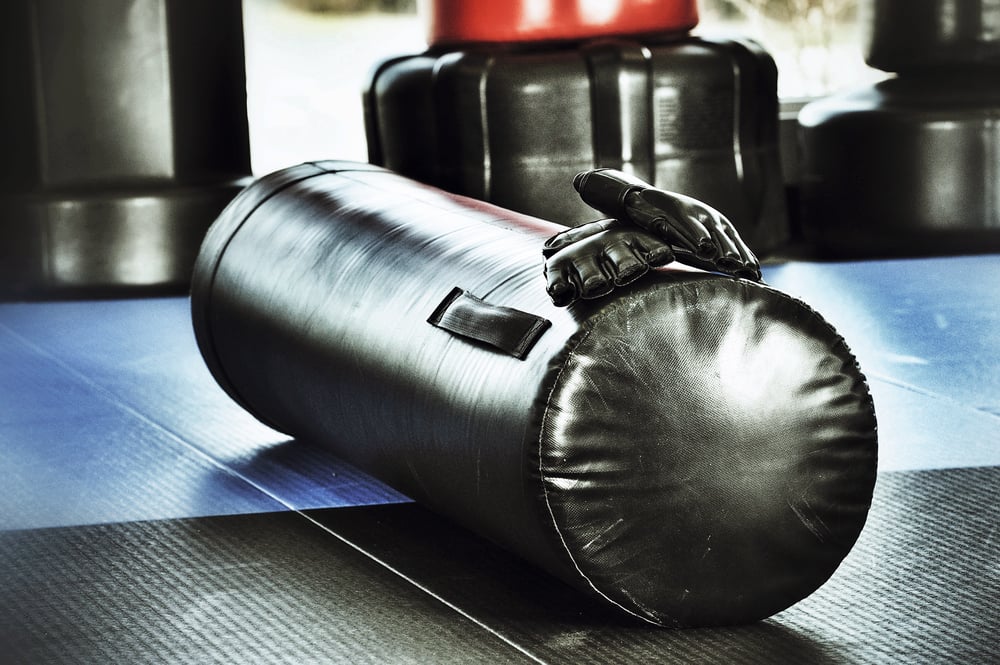
Issue 114
May 2014
It’s perhaps the most important question
you’ll ask yourself before heading to the gym
Paul McVeigh
Sports scientist, TUF 14 cast member and full-time coach – each issue he presents his best conditioning tips
For most of us who have never really thought about it, the reply to the headline may go something like this: “Well, I want to get leaner but bigger. I want to work on my fitness, but I also want to deadlift 200kg this year.
“Plus, I have a fight coming up so I need to work on my wrestling, jiu-jitsu, and, well, my Muay Thai too… Oh, and I’ve also just started skateboarding and so I want to get really good at that.”
When you go after everything you tend to achieve very little; your days may be varied and fun but no real progress is made.
Being a successful MMA competitor is multifactorial. This might have something to do with the fact you are, essentially, trying to learn at least three different sports simultaneously, sports that we could spend a lifetime on themselves.
And on top of all that we also have wall work and strength and conditioning. But that’s just physical prep. Add to that list some mental skills preparation and game planning and you can see why the spinning plates analogy is apt for mixed martial arts.
There will never be enough time to work diligently on everything, we just have to keep the plates from crashing to the ground rather than trying to keep everything spinning at full speed all of the time.
If you have decided to chase a career as a top-tier professional fighter then have a look at the guys making their debuts on TV cards and, indeed, those who have been there a while. There are three areas of expertise to address:
Technical abilities
Physical qualities
Mental control

The technical side of things is the most important. Many people, including myself, have been keen to emphasise the importance of strength work and mental skills training, but at the end of the day, if you can’t fight then you probably shouldn’t be considering a career in prizefighting just yet.
If you are exceptional in any of these areas you can make it work with a deficiency in another. The superb technicians, super athletes and unbreakably tough fighters have all beaten each other at one time or another.
By assessing where you are deficient you can see what you need to work on. Is your technical ability equal to those getting their UFC shots? If so, are you as athletic as the fighters you’re trying to emulate? And even with those bases covered, are you mentally strong enough to perform in one of the sporting world’s most high-pressure arenas?
If you have noticed a technical deficiency then your training should lean towards skill development. You can still lift and do other stuff, but if it becomes detrimental to what you are trying to achieve you might want to consider how seriously you are taking your own goals.
A lot of guys beat themselves up in the weight room to the point where they can’t perform in sparring. Keeping in mind what you are trying to achieve will help you to judge where your energies should be directed.
When physical development is to be prioritised make strength and conditioning work the most important part of your training programme. You can still skill train, but try and minimise the sessions that will mess with your weight room gains. Those may include Muay Thai and MMA sparring, as those heavy squats are going to be even more difficult if you’re struggling to walk.
This idea of constantly keeping in mind what you are trying to achieve can work at all levels. I have used the example of someone aspiring to be a high-level elite fighter, but it’s equally valid for someone looking to lose weight, get stronger or improve performance in any sport.
In fact, ensuring that your number-one priority remains your number-one priority can lead to improvements in all aspects of life. Remember, more is not necessarily better. Keep in mind the spinning plate analogy. Focus on your weak areas and your performance improvements will continue.










